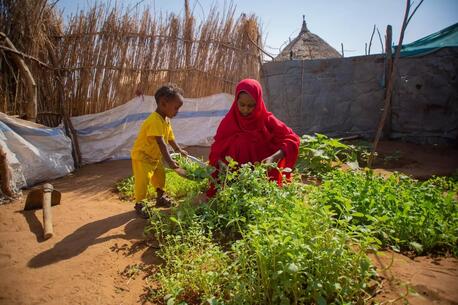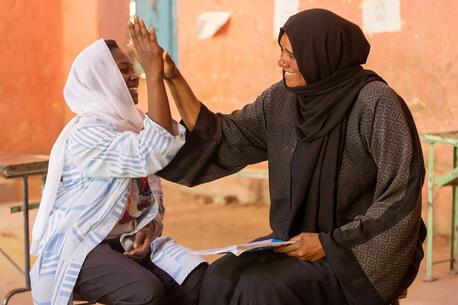
Childhood, Interrupted: Paying the Price of Conflict in Ukraine
Natasha, 16, remembers the heavy fighting that forced her family to flee from their seaside village of Shyrokyne, in Volnovakha, Donetsk oblast, eastern Ukraine. She was 11 years old.
Natasha misses her old school, and her teachers and classmates. Today, Shyrokyne remains deserted, her school in shambles — one of 750 schools that have been damaged or destroyed since conflict erupted in the region in 2014.
“Everyone grows up with a unique dream,” Natasha says. “The war takes it away and destroys the future.”
Children's access to learning has been severely curtailed in eastern Ukraine due to a number of factors — damage to school buildings being just one. Security concerns have prompted parents to keep children home even when classes are in session.
When schools closed due to COVID-19 pandemic restrictions, it meant considerable learning losses for thousands of students, particularly those from low-income families with limited or no access to the internet and digital devices. To address this gap, UNICEF provided over 20 schools with IT equipment, including laptops and printers, benefiting 3,420 children in 2021.
UNICEF is helping schools in Ukraine strengthen capacity and providing education materials so children can keep learning
Other interventions have reached thousands more. UNICEF's focus has been to help create and maintain a safe learning environment for children living in the conflict-affected areas — helping schools strengthen capacities to deliver quality, inclusive instruction by providing education materials and supplies, among other support.
In 2021, 7,400 students — boys and girls — benefited from emergency repairs to education facilities including improvements to water and sanitation facilities. Another 8,200 children benefited from teacher trainings provided by UNICEF and its partners. UNICEF has also helped Ukraine establish mechanisms for monitoring, reporting and preventing attacks on schools — all to help keep kids learning.
UNICEF remains on the ground in eastern Ukraine, working on both sides of the contact line to support education among other vital services, including health care and nutrition.
More support is needed. UNICEF has issued an appeal for $15 million in emergency funding to address the urgent and growing needs of 780,000 people in eastern Ukraine, including 120,000 children. The funding will be used to preposition supplies and personnel in support of contingency plans as the humanitarian situation in the region remains uncertain.
Help UNICEF reach children in need in eastern Ukraine. Donate today.


